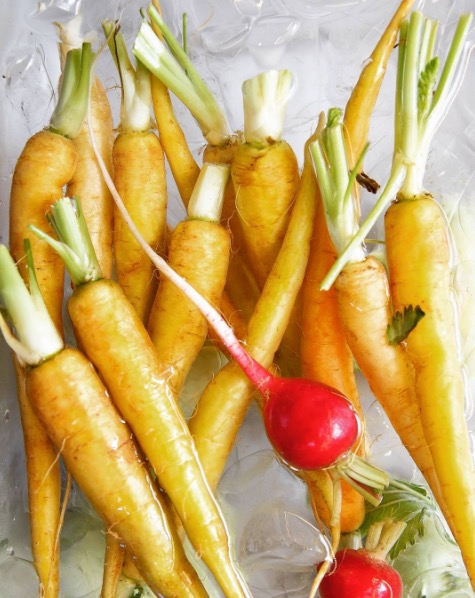Druze town of Daliyat el-Carmel. Photo by Ron Almog, courtesy Creative Commons
The population of Daliyat el-Carmel, near Haifa, is predominantly Druze. One of the more popular restaurants in the town is HaOrchim (“The Guests”), graciously extends the hospitality that its name implies. The meal starts with mezze: salads, roasted cauliflower bathed in creamy, parsley-flecked tahini, tabouleh with pomegranate seeds, lemony stuffed grape leaves wrapped tight and thin as a pencil, a dish of snowy, tart labneh sprinkled with a fragrant zaatar spice mixture, and a mound of hummus with a crater in the middle filled with tahini and a green pool of fresh olive oil, to be consumed with fresh pita bread, warm from the oven. Then on to sinyeh: lamb patties grilled and then baked with tahini; sambusak filled with a spicy combination of potatoes, onions, and green peppers; mushrooms and chickpeas in a blazing-hot pepper sauce, and so on.
“The meal starts with mezze: salads, roasted cauliflower bathed in creamy, parsley-flecked tahini, tabouleh with pomegranate seeds, lemony stuffed grape leaves wrapped tight and thin as a pencil.”
Many dishes revolve around meat; in Druze and Arab cuisine, the more meat served, the more luxurious the meal is considered, and the more respect shown to the guest. For dessert, if the traditional sweet aish el-saraia is on offer, it must be tried: cream, honey, and orange-blossom and rose waters cooked down until thick and garnished with ground pistachios—sublime. At the end of the meal, you may be served Arab coffee poured from a finjan, a long-handled metal pot. A joggle of caffeine and you will find the wherewithal to head out to the world again.
HaOrchim Restaurant
Daliyat el-Carmel































